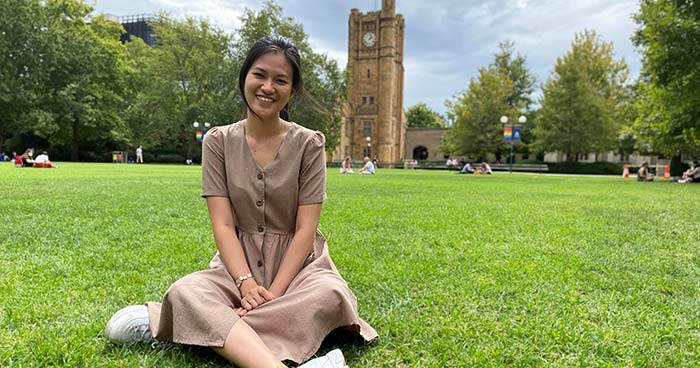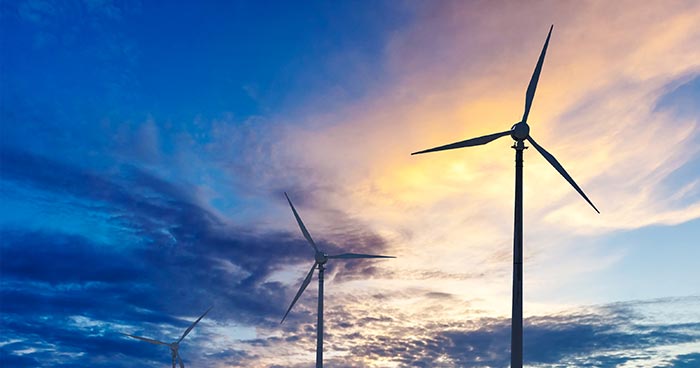Energised by diversity
The University of Melbourne’s emphasis on a multidisciplinary approach to research was a key factor in Rosa Belinda’s decision to move from her home in Indonesia to Melbourne to undertake a Master of Energy Systems.
I was drawn to this course’s multidisciplinary view on the energy sector … the technical, the commercial and the policy standpoints,
she says.

Rosa had begun a career in the renewable energy sector in Indonesia after completing her undergraduate studies in 2018 and says she soon realised that technical expertise alone is not enough to promote renewable energy.
Deep understanding of the commercial aspect is essential to bring ideas into realisation, and policy is undeniably a critical part in promoting renewable energy.
Rosa says her graduate studies support this by providing the opportunity to undertake a project in collaboration with industry. This is a final semester activity and will depend on grades, but it would be an exciting opportunity to apply what we have learned and to build professional networks.
Rosa says she is confident her course is equipping her in the best way possible to eventually be able to promote renewable energy in her home country.
Supporting this ambition and her studies is the diversity of student backgrounds and experiences – another factor that stems from a course that is multidisciplinary in its structure, she says.
It becomes more interesting because it allows us to approach things from different points of view.
Rosa says the whole learning and research experience becomes immersive. There are numerous opportunities offered by the University to expand your knowledge beyond the materials offered in the class, such as seminars, workshops and short courses offered by Melbourne Energy Institute (MEI). These give us an overview of what is happening in the real world.

Added to this, our lecturers are very supportive and helpful, especially during the transition to the virtual campus because of COVID-19. They made this incredibly smooth, providing us with learning materials and assignments while challenging us to think critically and to communicate our ideas effectively.
Rosa says she continued to build her networks and skills, joining energy webinars, careers workshops and study groups provided by the University.
After graduating, Rosa plans to return to Indonesia and work in the renewable energy sector, well equipped with the insights and skills necessary to help develop this sector and to contribute to creating sustainable energy systems – starting with her local communities.
There are numerous opportunities offered by the University to expand your knowledge beyond the materials offered in the class, such as seminars, workshops and short courses offered by Melbourne Energy Institute
As for being an international student in Melbourne, Rosa says she quickly discovered Melbourne to be a welcoming city. It was really easy … there are plenty of Indonesian students here to advise and help you find accommodation, and the city is beautiful and lively … easy to fall in love with and make you feel you have a new home.
Rosa says her advice to future students is to make the most of the whole study experience by exploring the numerous opportunities offered by the University – seminars, workshops, career mentoring and networking events, and the voluntary activities to improve your soft skills
and contribute to the community.
Related topics
Teaching and learning Energy Energy study options Student industry experience